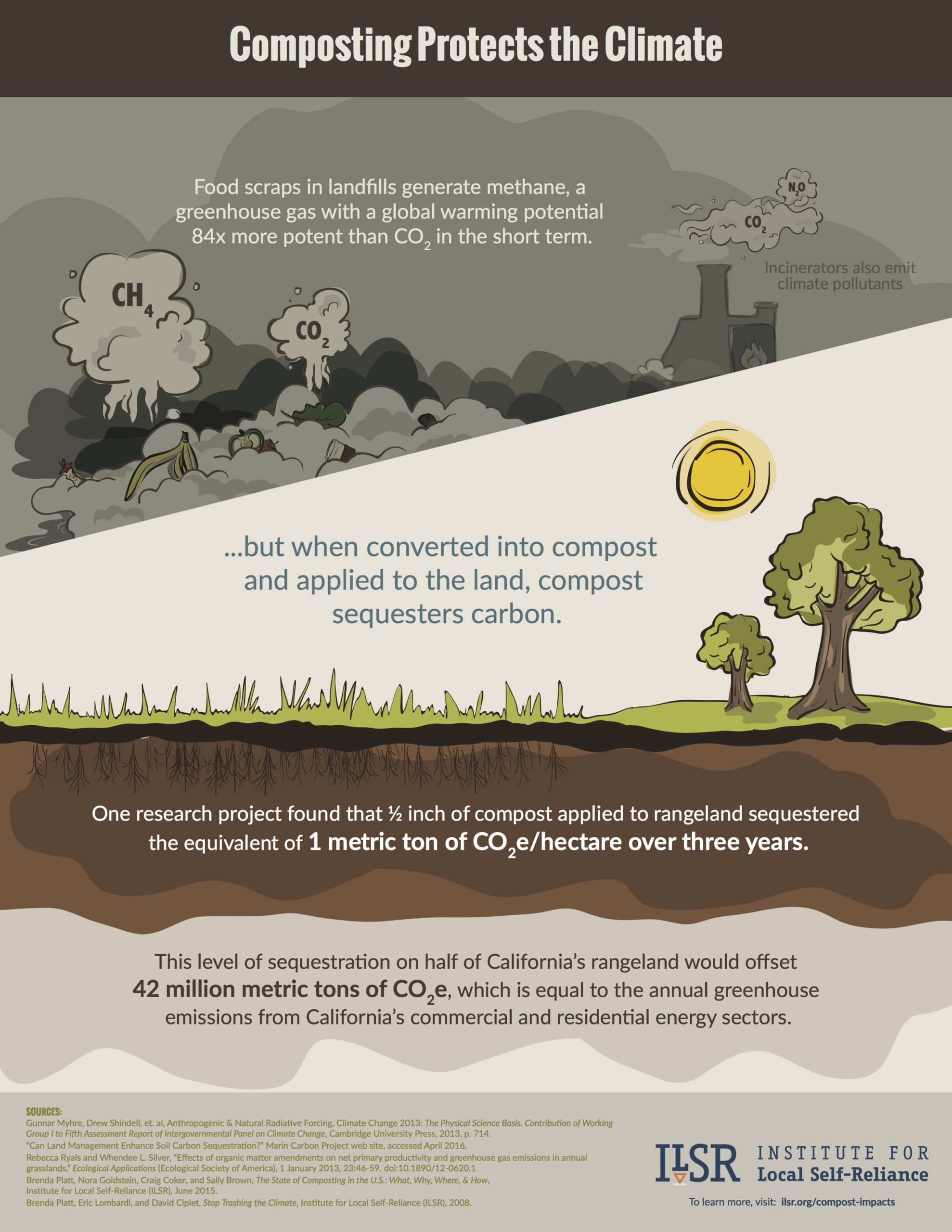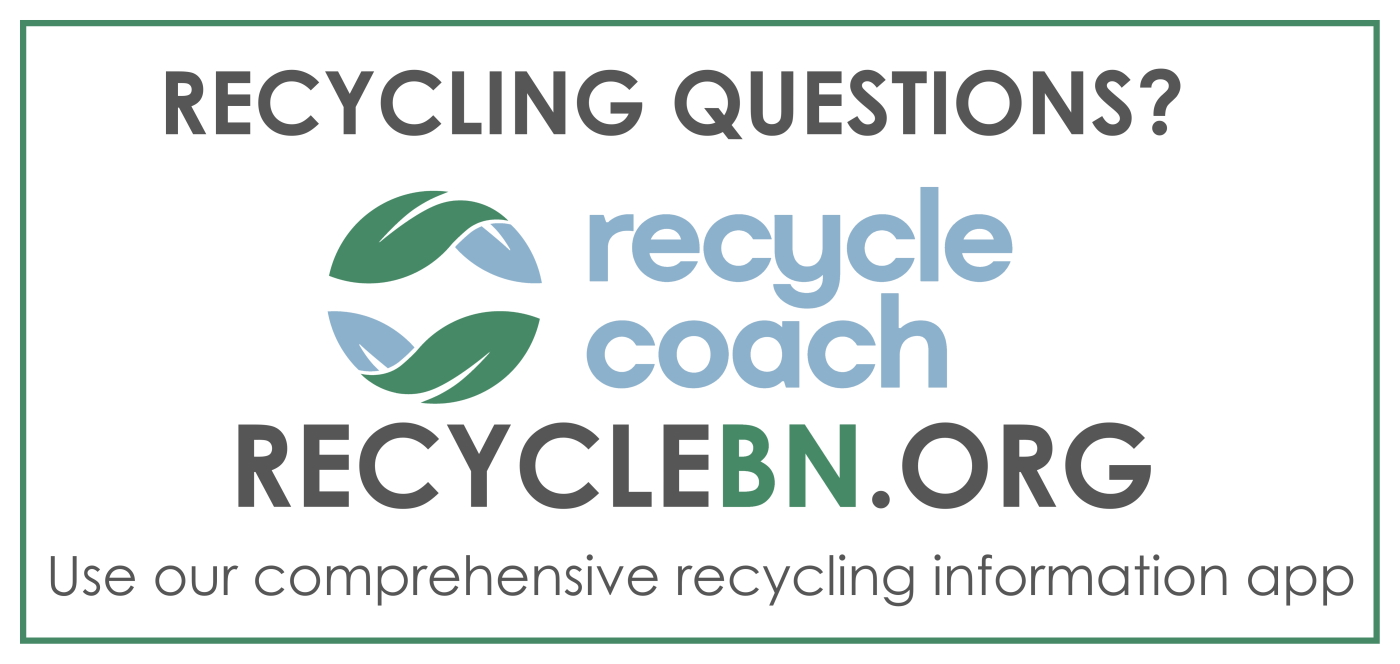Composting carries out part of the earth’s biological cycle of growth and decay. Plants grow by capturing the sun’s energy along with carbon dioxide from the air and nutrients and water from the soil. When plants (and the animals that eat them) die, they become raw materials for the composting or decay process. Microorganisms, fungi, insects, worms, mites, and other creatures convert the carbon from dead plants into energy for their own growth, releasing carbon dioxide into the air. Similarly, they recycle the nutrients from the decaying plants into their own bodies and eventually back into the soil. Other plants and microorganisms use the carbon and nutrients released by the composting process, and the cycle begins again.
However, if food waste, yard trimmings, and other natural waste make their way to landfills they will decompose anaerobically or without oxygen. This means that anaerobic bacteria will digest the organic materials and end up producing methane as well as CO2. It is common knowledge that CO2 is a greenhouse gas but it is also part of the natural decomposition process whereas methane is not. In fact, methane emissions are 20 times more potent than CO2. When we put inorganic materials in the landfill this doesn’t occur as they do not contain high carbon amounts and thus do not produce large amounts of methane gas.
The following comes from the Institute for Local Self-Reliance, a national nonprofit organization working to strengthen local economies, and redirect waste into local recycling, composting, and reuse industries. It is reprinted here with permission.





